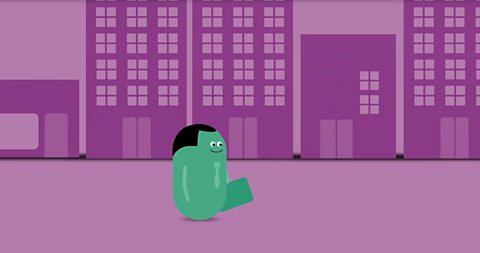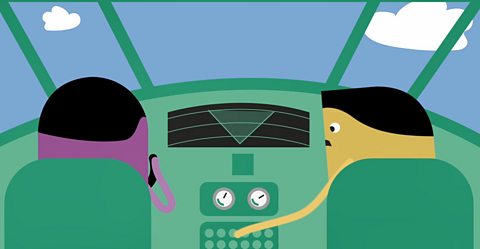What is globalisation?
Globalisation is all about building a worldwide network of communication, transportation, and trade.
This network connects businesses and people, and spreads technology, language, and culture.
Globalisation has a big impact on life in Northern Ireland
It can bring in fast food franchises as well as sending out our farm exports to China.
It draws in workers from other countries, and sends out our own overseas.
Whether these developments are good or bad often depends on your point of view.
Advantages of globalisation
Some of the positive impacts for Northern Ireland include:
- opportunities for Northern Ireland to do business with other countries;
- more businesses operating in Northern Ireland, leading to an increase in trade and employment;
- access to new technologies developed in other countries;
- exposure to new cultural experiences in the form of music, movies, books, television, food and events.
Disadvantages of globalisation
- the closure of some local businesses because cheaper products can be bought from outside Northern Ireland;
- staff redundancies due to businesses closing;
- local firms may struggle to meet rising demand from other countries;
- bureaucratic issues, such as filling out paperwork and getting the correct permissions to work in other countries, may be time consuming;
- local businesses relocating to cheaper countries, taking jobs with them.
Globalisation has made its biggest changes in the workplace
Workers in Northern Ireland traditionally worked in linen and rope making, and in the shipbuilding industry.
These jobs have moved to lower-cost countries in Asia.
Computers have replaced people in many industries.
The car industry is a good example. It was once a big employer, but most of the work is done by robots today.
Meanwhile, there has been an increase in jobs in the IT, customer service, and financial sectors.
As these changes continue, employees must retrain and learn new skills to keep up.
Not only do things move around the world more these days – people do too.
Migration is when people leave their own country and move to another.
They do so for many reasons, but most often to find employment, or a better standard of living.
Politicians often discuss migration because they want to control the flow of people coming to and leaving the country.
Some nations have strict migration laws to control the number of people who move there.
People usually migrate to improve their quality of life.
They may be looking for employment with better pay and conditions than they can find at home.
They may move to escape war or persecution.
Why do migrants come to Northern Ireland?
Northern Ireland is attractive to migrants.
There are good employment opportunities, the National Health Service is free, and the education system is excellent.
Northern Ireland is reasonably stable and safe, and this is attractive to those fleeing war.
What are the disadvantages for migrants in Northern Ireland?
Migrants to Northern Ireland may have to take low-paid work and live in poor housing conditions.
They may feel excluded from society if they don’t speak English. They may also suffer from racism.
Some local people feel threatened by the presence of migrants.
Why do people leave Northern Ireland?
Some people leave Northern Ireland to find better employment opportunities elsewhere.
They may move to a country with higher salaries and more chance of promotion.
Many other countries have a warmer climate and this is attractive for some.
Disadvantages of emigration
Northern Ireland suffers when too many skilled professionals leave. We need educated people to provide the services we have come to expect.
More on Employability
Find out more by working through a topic
- count2 of 5

- count3 of 5

- count4 of 5

- count5 of 5
